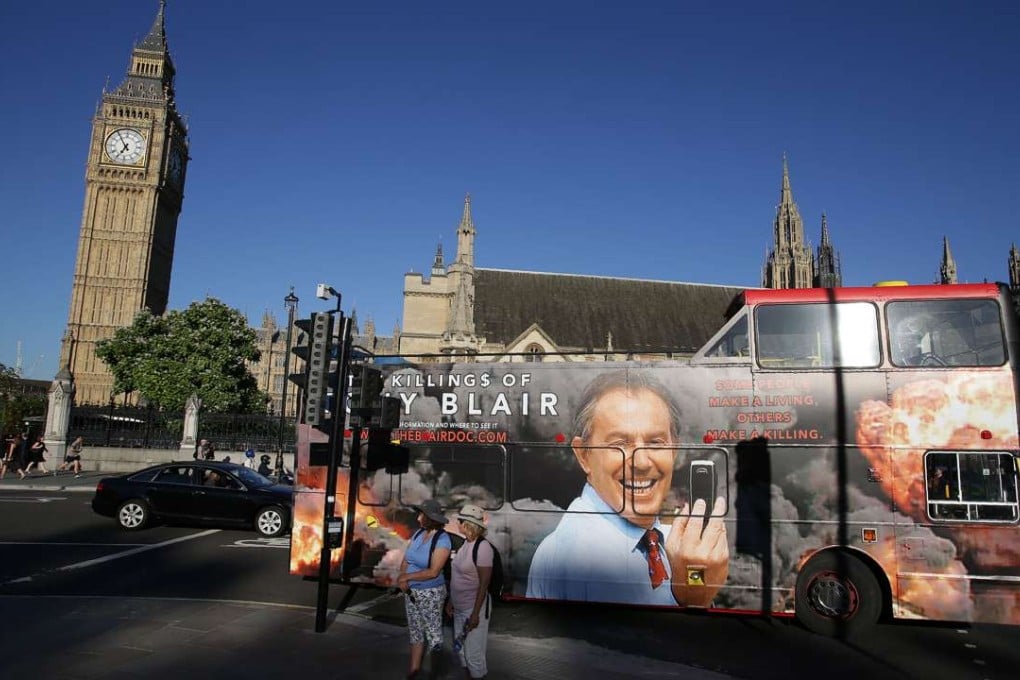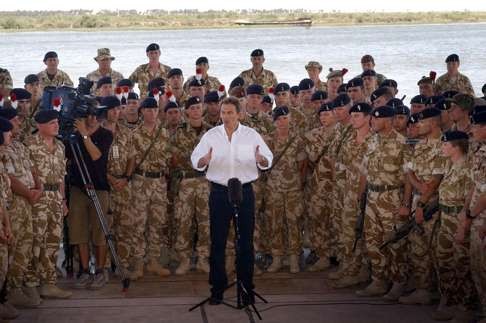Brexit may represent the final rejection of Tony Blair’s legacy of globalisation
Kenny Hodgart says even before the publication of the damning Chilcot report, many people had made up their minds that the former UK prime minister was a villain, but one thing is clear – he was an internationalist all the way

It’s telling that when they were lining up to scold Britain in 2013, both Russia and China took aim at its self-image. “A small island that no one pays attention to” was the verdict of Vladimir Putin’s spokesman, Dmitry Peskov. “Just an old European country apt for travel and study,” chimed the Chinese Communist Party-owned Global Times.
Fear of insignificance has rather haunted vital regions of the British psyche, perhaps for as long as the country has been without imperial possessions. Certainly, as detailed in Lord Chilcot’s voluminous and long-awaited report on his inquiry into Britain’s role in the Iraq war, published earlier this month, it haunted Tony Blair.
Chilcot’s report is about five times the length of War and Peace
The former prime minister’s determination to go to war, Chilcot tells us, was underpinned by a sense of anxiety about Britain’s role on the world stage. In particular, he wanted to show that its “special relationship” with the United States mattered; that however much George W. Bush might have been prepared to walk a unilateralist line in 2003, deep down, America really needed Britain on board.
Chilcot’s report is about five times the length of War and Peace. Unpacking it has therefore served as a distraction from the fallout of Britain’s vote to leave the European Union – a decision that has caused its own surfeit of angst. It has also meant assessments of the freshly-exeunted David Cameron’s prime ministerial legacy have jockeyed with renewed interest in the record of a man (Blair) who left office nine years ago.

‘Unbowed arrogance’: British press respond with venom to former prime minister Tony Blair’s apology for Iraq war
The trouble with all of this is that Blair’s enemies – and they are legion, on both the left and right of British politics – hardly needed to read what Chilcot had to say about him, because they had already made their minds up as to the extent of his villainy. However nuanced the report, enough of it can be marshalled to succour the notion that the war was fought illegally – and for some that’s all that matters, as though proving the point might make the big bad world more ordered, more rational.

